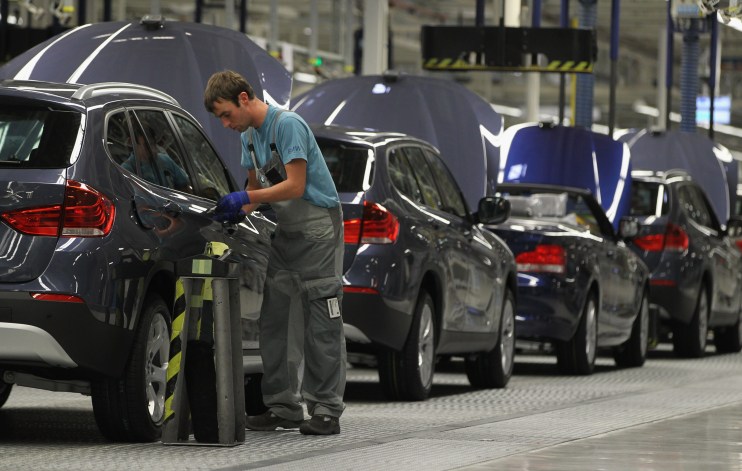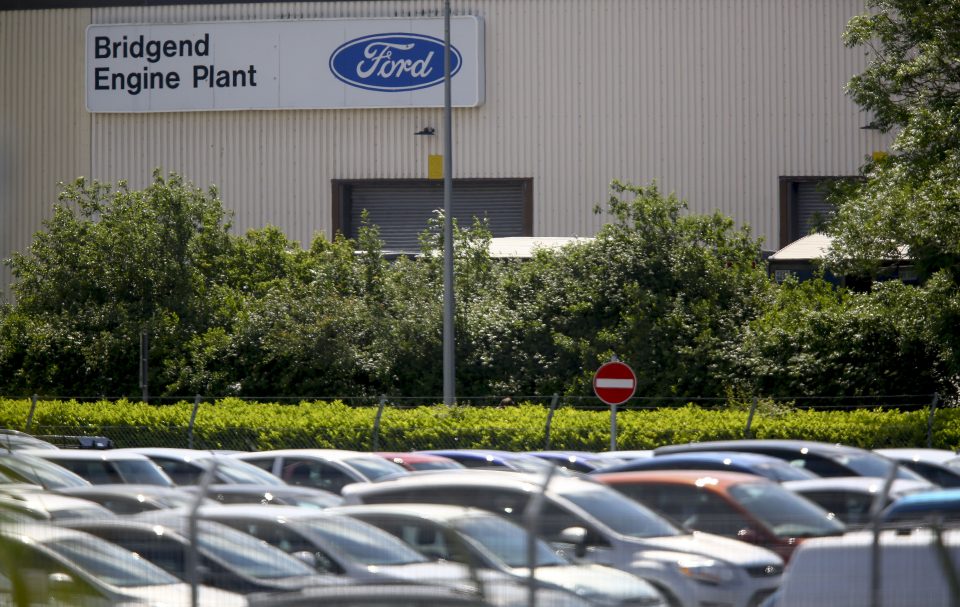Car industry investment grinds to a halt as Brexit uncertainty cripples sector

Investment into Britain’s car manufacturing industry has come to a near-standstill, as companies divert hundreds-of-millions of pounds towards mitigating a potential no-deal Brexit which they fear will plunge the sector into chaos.
Inward investment into the sector plummeted more than 70 per cent to just £90m in the first six months of the year, according to figures published by the Society of Motor Manufacturers and Traders (SMMT) this morning.
Of this, only £67m came from companies making investments, with £23m coming from new government spending in June on electric car research.
The figures did not include a £1bn investment into building electric vehicles in Britain in early July by Jaguar Land Rover. However, the SMMT described the move as “something of an outlier”.
“The vast majority of manufacturers have suspended plant and product spending in the UK amid ongoing uncertainty,” it said.
SMMT chief executive Mike Hawes said the “precipitous fall” in investment was the “most worrying” aspect of the last six months for the British car industry.
Any trade tariffs or friction at the border caused by exiting the EU without a deal would “threaten the very viability of the industry,” he told journalists.
“We can’t have confidence in the future without confidence we can get a deal,” he said.
£330m Brexit contingency bill
The trade body also revealed manufacturers had spent more than £330m on contingency planning ahead of Brexit. This includes spending on stockpiling goods, new IT systems and bringing planned summer factory shutdowns forward into the spring season, a move which was designed to help firms protect against potential supply chain disruption after the original 29 March leaving date.
One company has spent more than £100m shielding itself from no-deal.
The spending spree comes as the global car making industry tussles with a dramatic cooldown in China, its biggest market.
At the same time, firms are racing to establish themselves as major players in the nascent electric car market, and to develop self-driving technology.
Hawes said companies would benefit from being able to spend their money “tackling technological and environmental challenges”.
It is unclear how much of the £330m has been lost as sunk costs after the original 29 March Brexit date, and how much can be carried over to the new 31 October leaving date.
Reiterating a letter he sent to the new Prime Minister Boris Johnson over the weekend, Hawes urged the new government to negotiate a Brexit deal quickly, “so manufacturers can get back to the business of building cars”.
A spokesperson for the Department for Business, Energy and Industrial Strategy said: “We continue to talk to industry, including the automotive sector, in the run-up to exit day to ensure they are prepared and can maximise the opportunities of our exit from the EU.”

Production continues to fall
Furthermore, UK car production fell 20 per cent overall in the first six months of the year, with June marking the thirteenth consecutive month of decline.
About 667,000 cars rolled off production lines in the first six months, a year-on-year loss of 168,000 units.
Exports to the sector’s top global markets fell by double digits. The US was down 12.9 per cent, China down 53.1 per cent and Japan 10.5 per cent.
Demand in the UK’s biggest market, the EU, also fell by 15.6 per cent. However, the EU still accounts for more than half of all UK car exports.